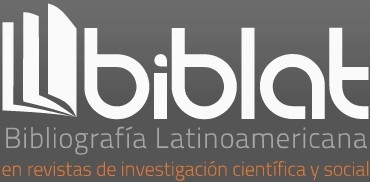The impossible Client (History of a Ressentment)
DOI:
https://doi.org/10.35494/topsem.2017.1.37.483Keywords:
iconization, semi-symbolic correlations, aesthetic capture, values and valences, affective and cognitive incompetenceAbstract
In the short story “Los Merengues” the sense is determined
retrospectively. The short story is oriented to the conjunctionconsumption
of some candy, an objective that the main character
does not come to achieve. The affective-cognitive incompetency
of the protagonist boy is presupposed, this incompetency undervalues
the practical means the boy has: the money. His program
of appropriation clashes against the counterprogram of conservation
of disjunction played by the opponent, this counterprogram
finally wins. The contract is denied, the conflict prevails. The
resulting frustration arise deception and malcontent, along
with the project of construction of another objective: revenge.
Upon the passional scheme of rage, this analysis explores the
dimensions of competence, the structures of interaction, the phenomena
of ascending and descending tensivity, the valences of
values and the construction of bodies.
Downloads
References
BORDRON, Jean-François (2012). « Vie(s) et diathèses ». Actes Sémiotiques, núm. 115 [en línea]. Recuperado de [http://epublications.unilim.fr/revues/as/2654 (consultado el 7/8/2016)].
DORRA, Raúl (2003). “Para una semiótica del llanto”. Perfiles Semióticos, año 1, núm. 1. Mérida: Universidad de Los Andes: Ediciones del Rectorado/Grupo de Investigaciones Semiolingüísticas.
FONTANILLE, Jacques (1989). Les espaces subjectifs. Introduction à la sémiotique de l’observateur. París: Hachette.
___________ (2001). Semiótica del discurso. Lima: Universidad de Lima.
___________ (2008). Soma y sema. Figuras semióticas del cuerpo. Lima: Universidad de Lima.
___________ (2012). Semiótica y literatura. Ensayos de método. Lima: Universidad de Lima.
GREIMAS, Algirdas (1989). “De la cólera. Estudio de semántica lexical”. Del sentido II. Madrid: Gredos.
___________ & FONTANILLE, Jacques (1994). Semiótica de las pasiones. De los estados de cosas a los estados de ánimo. Puebla/México: Siglo XXI/BUAP.
HENRY, Michel (2010). Fenomenología de la vida. Buenos Aires: Prometeo Libros/Universidad Nacional de General Sarmiento.
LANDOWSKI, Eric (2009). Interacciones arriesgadas. Lima: Universidad de Lima.
___________ (2015). Pasiones sin nombre. Lima: Universidad de Lima.
LÓPEZ MAGUIÑA, Santiago (2004). “La blanca suciedad. Análisis de 'Los merengues’”, de Julio Ramón Ribeyro. Recuperado de [http:// www.elhablador.com/merengues3.htm].
ZILBERBERG, Claude (2006). Semiótica tensiva. Lima: Universidad de Lima.
___________ (2015). La estructura tensiva. Lima: Universidad de Lima.
___________ (2016). De las formas de vida a los valores. Lima: Universidad de Lima.
Published
How to Cite
Issue
Section
License

Tópicos del Seminario is licensed under a Creative Commons Reconocimiento-NoComercial-CompartirIgual 4.0 Internacional License.














